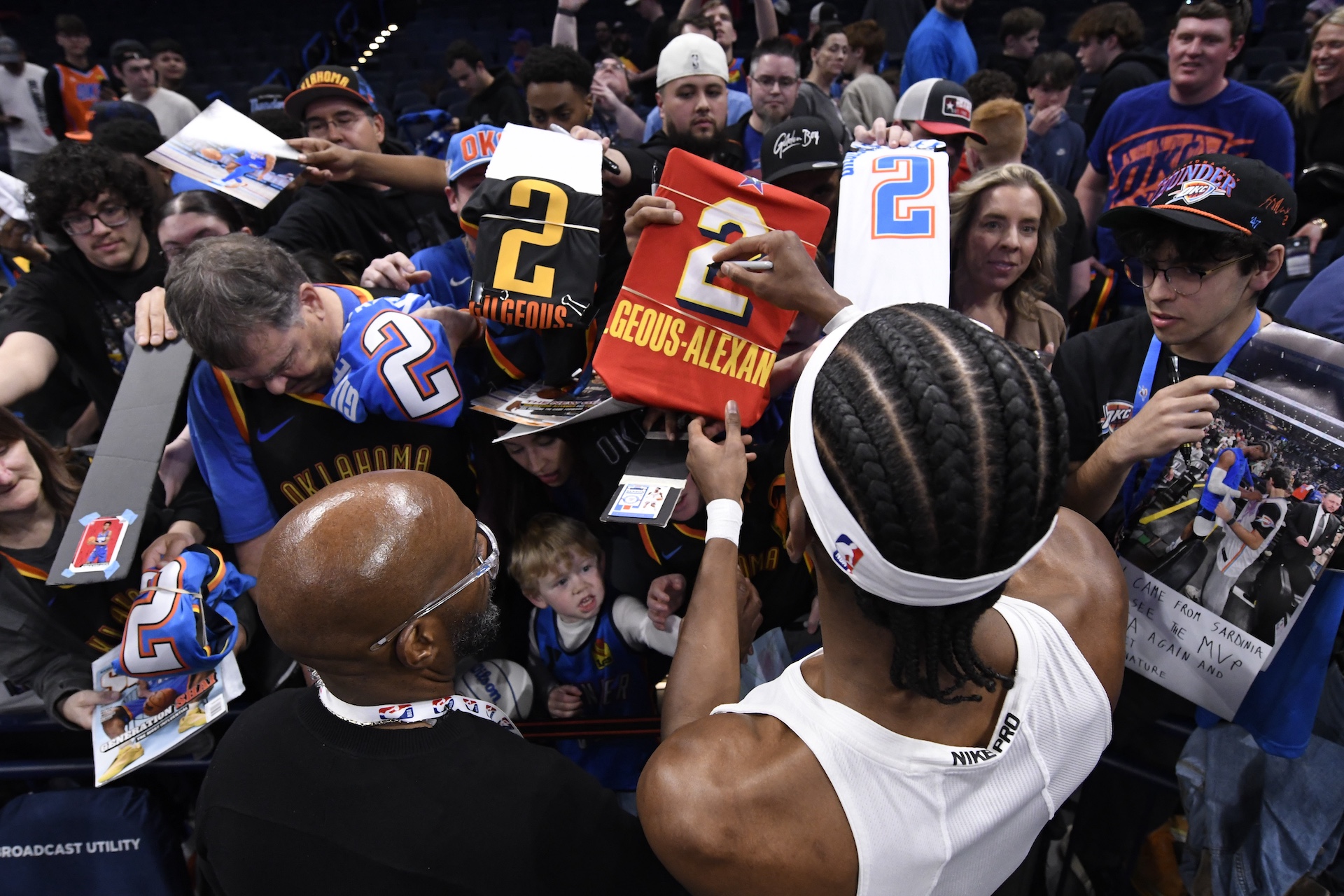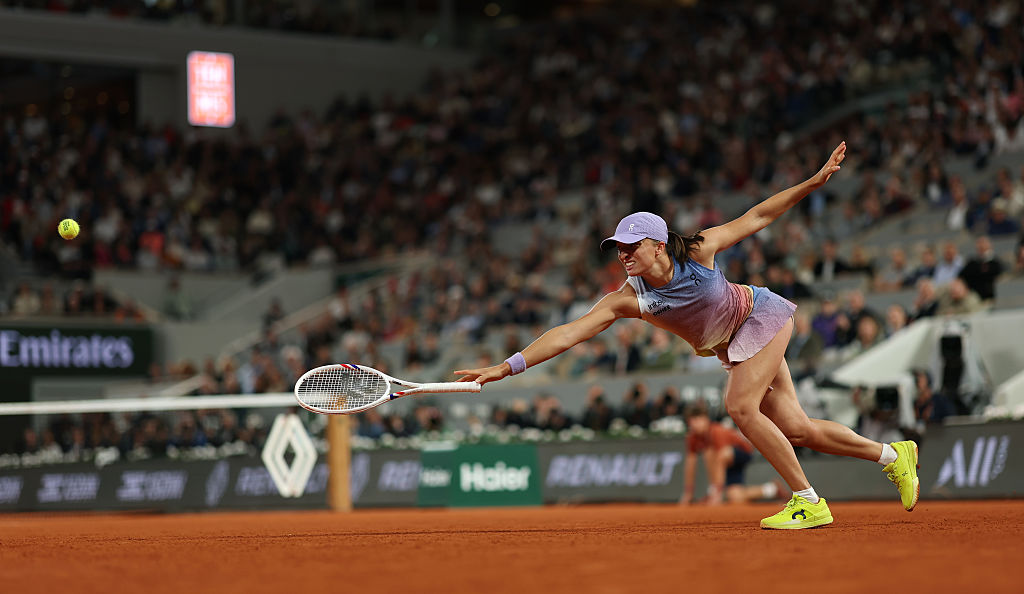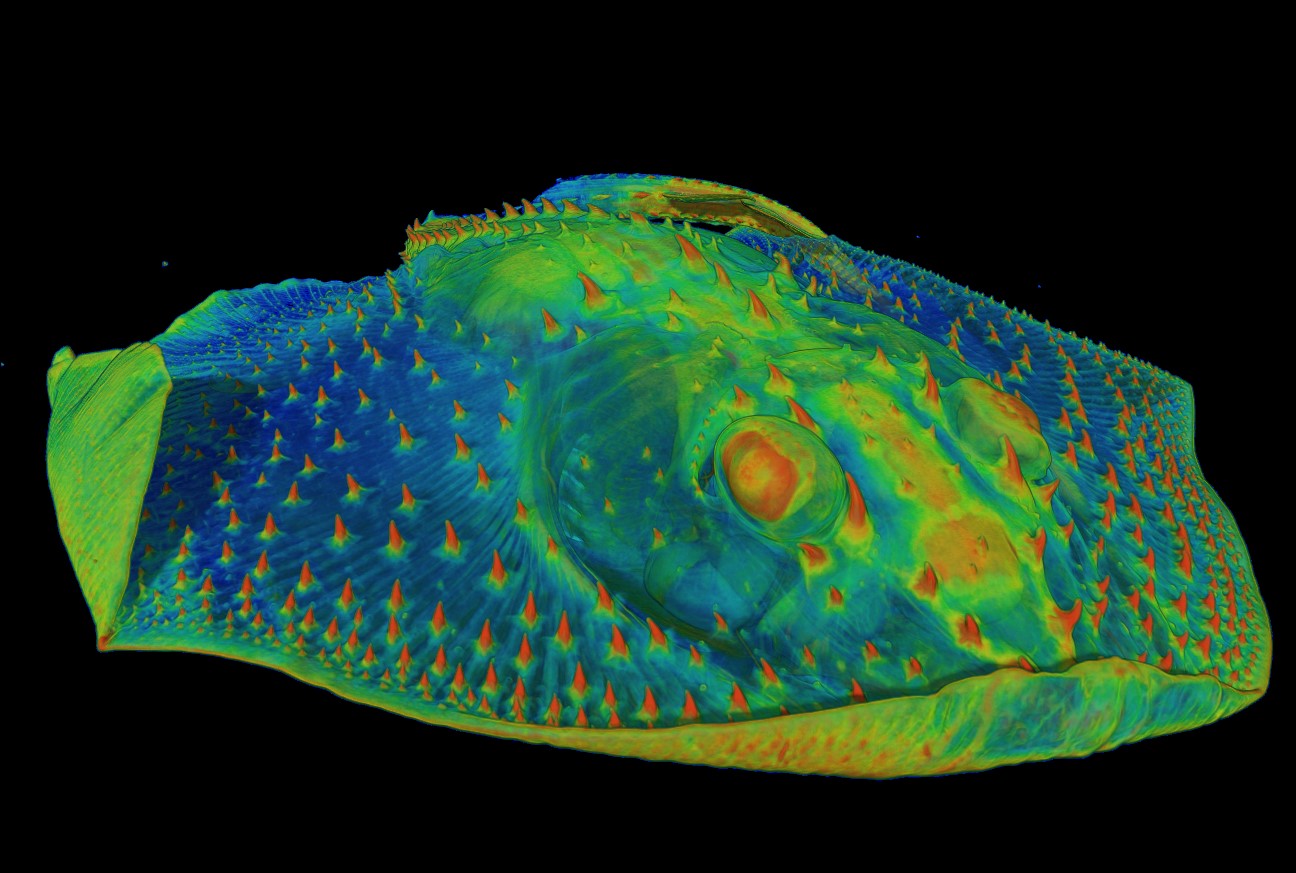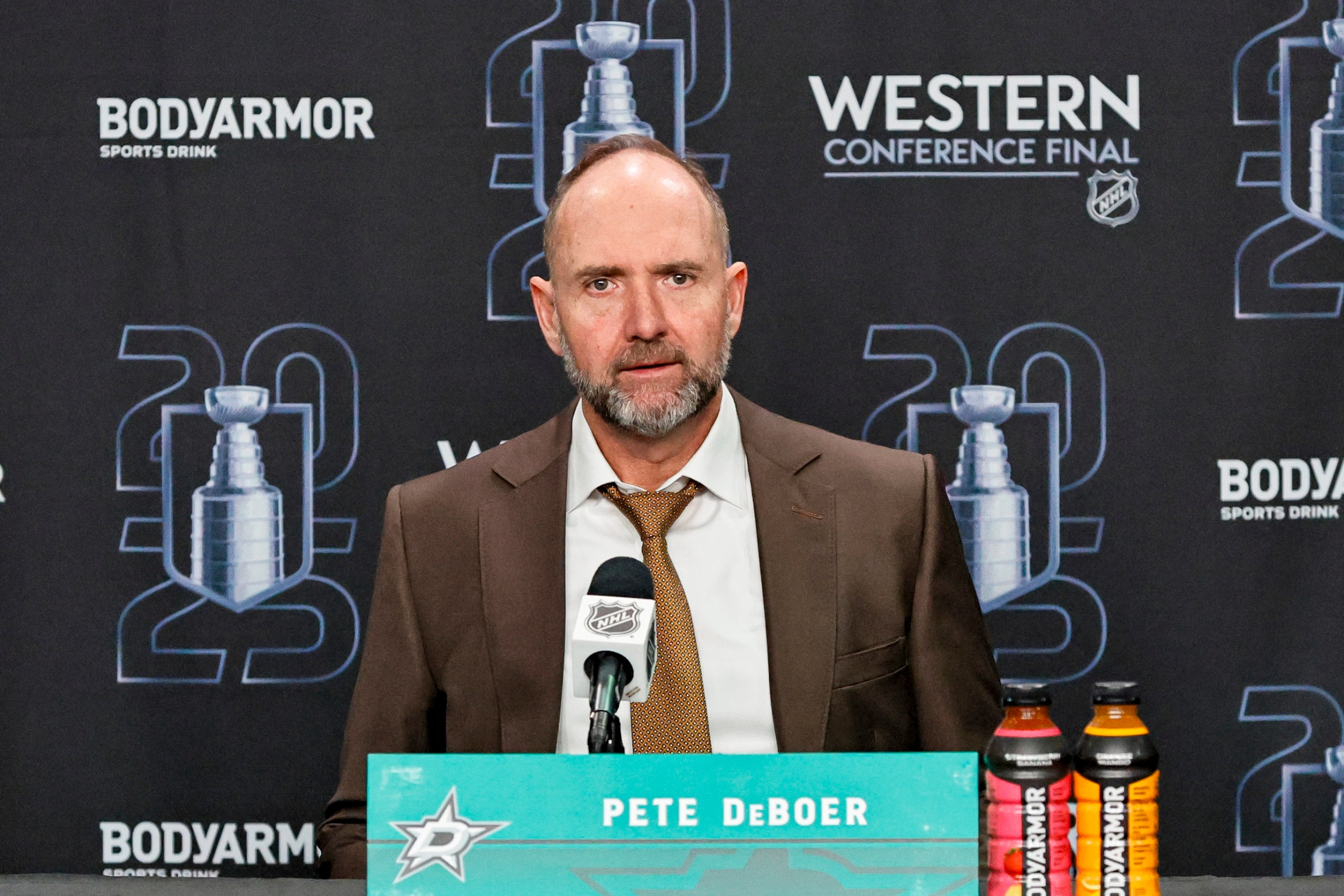It’s 1994. Nike, whose golden goose has put down the basketball and picked up the baseball bat, is trying to figure out what to do with one of the brightest young talents in the NBA. His name is Penny Hardaway. His game is silky smooth, his shot is effortless, and he glides through defenses like Houdini. He’s a good-looking kid, tall but not gangly, with a cool haircut and a great smile. He plays alongside of one of the league’s newest larger-than-life characters, Shaquille O’Neal. By most metrics, he looks to be the perfect spokesman, but there’s one major problem: he’s very shy. Not flashy, not over-the-top. A showman on the court, but nowhere else. Nike, though, has an idea: Instead of forcing him to be more outspoken, what if he had a personal spokesman of sorts? Another version of himself that could embody the personality and flair his game has but the man lacks?
"They said, 'Since you’re so quiet and reserved and laid-back, wouldn’t it be great to give you an alter ego?'" Hardaway recalled about his conversations with Nike over the direction of their marketing campaign. "We called the alter ego Lil Penny and I loved it right away, because somebody would be talking trash for me. I thought that was pretty cool."
This is how Nike created Lil Penny, a flamboyant puppet version of Penny, voiced by a burgeoning Chris Rock, that did all the talking so Penny didn’t have to. With Rock's nasally, attitude-filled voice, it brought an obnoxious humor and street-wise style with it. As a result, Lil Penny was a phenomenon, one that made the real Penny one of the era's biggest pop culture figures. Everyone loved Lil Penny, and therefore Hardaway himself, and everyone wanted to be part of it—and also buy the shoes, of course.
There’s been some consternation lately about the lack of cool in pop culture right now, specifically a lack of cool athletes. Back in the good old days of the '90s, we had the likes of Bo Jackson, Ken Griffey Jr., Deion Sanders, and Michael Jordan, athletes who were great at their respective sports but also were globally recognized as the pinnacle of cool. While there are no shortage of great athletes today, so many of even the biggest and best players not only lack a coolness factor, but come across as actively uncool. Where did all the coolness go, and why did we lose it?
While I agree this is a real issue, in trying to locate the cause of it within our culture, many overlook the most material basis for it. The fact of the matter is, where mainstream pop culture is concerned, coolness is manufactured. Traditionally, this production of sports coolness was handled primarily by the advertising partners of the various leagues. While it’s true that the man himself had a magnetic swagger and charisma that's undeniable, the concept of "Michael Jordan," the one that to this day still dominates our imaginations and memories, was invented by Nike and Gatorade. Nike commercials featuring Spike Lee and Bugs Bunny put him at the center of both the hippest and the most mainstream culture. Gatorade literally wrote a jingle about how great he is, and then paid millions of dollars to make you hear it over and over again. If Jordan seemed larger than life, it was in large part because advertisers built the world's biggest billboard and slapped his image onto it.
It’s not so much that the athletes of the past were inherently cooler, nor that athletes now are incapable of being cool. Rather, there once was an enormous infrastructure of advertisers whose job it was to create a mythos and style to our best athletes. Sometimes they’d highlight already big personalities like Jordan or Shaq or Charles Barkley. Other times, they’d find ways to inscribe personality into more modest stars, like Hardaway or Bo Jackson. I bet you can't list two things you know about Jackson personally, but you certainly remember Nike's "Bo Knows" campaign. There was a time when that's all you needed to know about these athletes.
In contrast to yesterday's slick marketing campaigns crafted by expert ad agencies, the presentation of today's athletes is mostly handled by the athletes themselves over the internet. This has granted us a more direct and in-depth knowledge of athletes as people, and it turns out we often don't like what we see! Many of them can be jerks, entitled babies, idiots, or just plain annoying. In addition, "coolness" as a signifier in the internet age has taken something of a backseat to "authenticity": the idea that it's better for a person to be completely transparent about who they are regardless of anyone's opinion. For athletes especially, the tradeoff is a bad one. The overexposure, the compulsion to state and react and post, and the internet's long memory robs them of mystery, which is one of the foundations of cool. It's the desire to know the unknown and unknowable, and the way anyone can project any and everything into that void, that creates the conditions for coolness. And the internet abhors a vacuum. Kevin Durant is a perfect example—a guy known almost as much for posting bad takes online as for being one of the greatest shooters the game has ever seen.
If the incentives of the internet naturally lead athletes away from the cool, presumably it's the job of the marketing professionals to steer them in the right direction. So what happened to advertising after the social internet took over? Nike's ads are still all over basketball games—A'ja Wilson has a pretty good one now—but the magic of them has been lost. Every Nike or Gatorade ad these days seems to follow the same script: disparate images of a star player working out/playing their sport of choice, a bunch of children playing that sport, and then sometimes those players and the children playing the sport together. There's no variety or personality to it. A similar blandness can be seen in Nike's shoes themselves. Even Adidas, which now has one of the most charismatic new NBA stars in Anthony Edwards and an actual great-looking shoe, has done nothing to make that personality pop other than hearken back to some sneaker ads from the past. It's no coincidence that as advertising budgets at brands like Nike have shrunk, their ability to maintain status and relevance for themselves and their athletes has dwindled.
The result fits well with our broader culture of stagnation, regurgitating what we've already seen before in lieu of coming up with anything new. Tyrese Haliburton does Reggie Miller's choke gesture, Jayson Tatum celebrates his NBA title like Kobe and Kevin Garnett did, people desperately try to read Deion's flair into Shedeur Sanders, and Anthony Edwards is moving like Wilt Chamberlain (not exactly in homage though). The past is the present forevermore. Even athletes who might have hints of coolness—Jalen Hurts, Shai Gilgeous-Alexander, Cameron Brink—don't have the platform to heighten it. They've done the first part by not being online all the time, but their various marketing partners no longer maximize their personas in any real way. After Hurts won the Super Bowl, the best he could get from Nike was a slogan on a T-shirt.
Marketing has become one of those things we've just decided to leave to the internet, like journalism and the entire music industry. But the internet doesn't value coolness, even as they respond to it subconsciously. Part of this ridiculous Jordan-LeBron debate that we can't escape does just come down to the fact that people think Jordan is cooler—they remember the larger-than-life folk legend sold to them, even more than the athlete himself, as opposed to LeBron, who now feels omnipresent and inescapable, like the surveillance state. The guy is kind of a dork, losing his hair, is absolutely fame-hungry, and therefore uncool.
Nobody actually wants to know about their favorite celebrities as people; they want to know them as an idea that actually reflects themselves in some way. And then later on, they want to read about those celebrities' terrible exploits in a tawdry tell-all biography long after their star has faded. While I don't think we'd be well-served returning to a world where coolness is dictated by marketing execs tricking us out of our paychecks, something has to give with this phony concept of relatability and other internet cringe. Timothée Chalamet and Zendaya seem to be doing it right, but most athletes don't have the movies to make them bigger than life. We don't just watch sports for the athletics, we want a story, and the leagues haven't figured out how to tell those stories that hasn't hinged on marketing or the internet just yet. Until they do, coolness is facing a losing battle.






